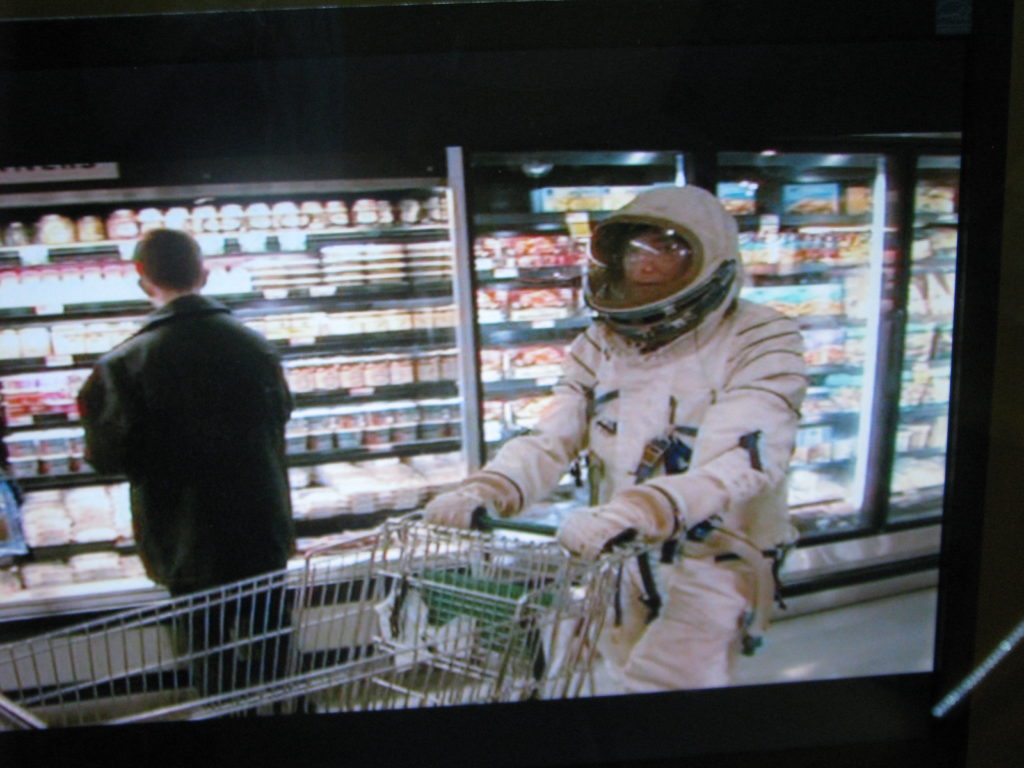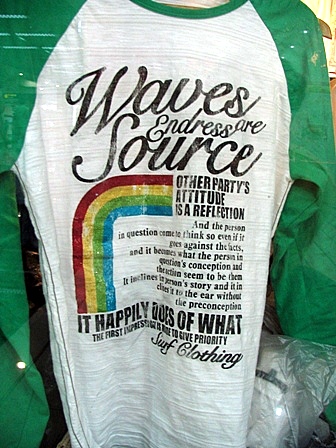“MOON LIFE CONCEPT STORE,” with Alicia Framis and others; to tour Rotterdam, Amsterdam, Moscow, Paris, Lerida and New York as a popup-shop show after debuting in Shanghai.
MOON LIFE CONCEPT STORE (3/F, 171 Jianguo Middle Road, Taikang Terrace, Shanghai). From December 10 to January 11, 2011.
The Shanghai Expo is over, and, with the exception of the China Pavilion, history. Yet the Expo spirit lives on, in curious fashion, in the Alicia Framis-orchestrated MOON LIFE CONCEPT STORE, a globe-trotting Sino-Dutch collaboration that, in a playful-yet-earnest manner, sells the notion of the colonization of the moon (for free, it should be said — nothing is for sale).
Expo was inherently an exercise in projection that meant quite different things to different people. Where a cynic, say, discovered retro-futurist kitsch and ironic echoes from two centuries’ worth of utopian World’s Fairs, an optimist might have encountered a hopeful expression of faith in progress and future technologies, with a rising China at the forefront — the same China that is planning a manned moon shot with a determination reminiscent of the Americans who almost half a century ago planted flags and swatted golf balls “up there”/on the moon.
So Moon Life is, in a sense, Expo’s lost pavilion, a satellite transmitting a mutated lunar version of the blithe “Better City, Better Life” theme. It’s fun because it allowed this cynic to detach enough from too-fixed a perspective to enjoy the projection and interplay of desires, fantasies, hopes (and, despite the Expo-esque fun of it all, fears). Such detachment helps catch glimpses of how well suited the project is to an authentically global (post-global?) art-consumer audience, as well as the degree to it succeeds (or not) in its stated goal of a “more democratic, peaceful, artistic and cultural investigation of space” than the Cold War superpower space race delivered.
MOON LIFE’s well-sponsored artists, designers, architects and musicians have produced work that, on the whole, is indeed fun in a fashion that seems to want to gesture toward difficult subjects without being a killjoy about it (Steven Hawking’s proto-post-Earthling statement comes to mind: “I am an optimist. If we can avoid disaster for the next two centuries our species should be safe as we spread into space….”). Such low-gravity playfulness makes it fun to entertain setup questions like: “Do you want to try the prêt a porter collection for the moon? Do you want to know how is the soda bottle 360 degrees will look?” [sic].
And yes, it’s fun to kick off your shoes and explore the bynSTUDIO-designed modular exhibition space’s disorientingly angled yellow fabric surface; flip through Moon Vogue; follow the NYC wanderings of Alicia Framis’ Lost Astronaut (the collaborative video is easily MOON LIFE’s strongest piece); admire the clever Very Low Frequency Fireplace fueled by stray radio waves; float a moment on Monica Tormell & Stefan Bjork’s “Moon Anthem” or Yan Jun’s ambient Music for the Moon. It’s pleasant, too, to consider the moon’s deep cultural role with Pan Jianfeng’s Chinese Moon Calendar. Yet in the end, the potential for (not necessarily intentional) Swiftian satire inherent in Dus Architects’ Worldmoon “Global Cemetary” creates a dark undercurrent: we’ll escape a crowded, hothouse Earth by seeding our beloved satellite with nutrient-rich human crematory ash, ultimately making its cold bleakness habitable. Sound fun?


